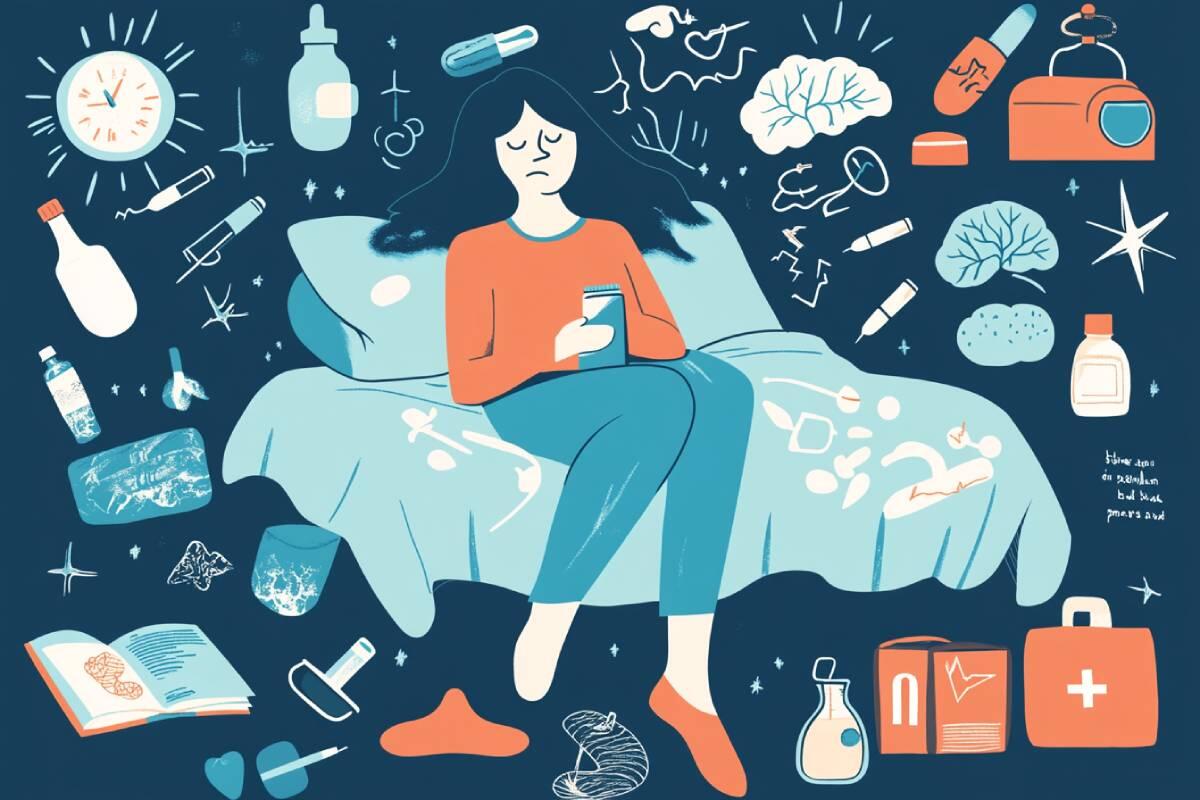Four Out of Five Women Experience Psychological or Physical Symptoms Near Menopause. Do You Know What They Are?
Although menopause is a natural stage in a woman’s life, it does not affect everyone the same way. Four out of five women experience psychological or physical symptoms near menopause. However, the transition period to menopause, the age at which symptoms begin, and their severity vary from woman to woman.
A common question among women is: "What will I feel when I reach menopause?"
What Is Menopause and When Does It Begin?
Menopause is defined as the end of a woman's menstrual cycle, resulting from the natural aging of the reproductive system due to the cessation of ovarian function.
On average, menopause occurs around 49 years old, but it can vary between 45 and 55 years, depending on the individual. This means that women spend about one-third of their lives in the postmenopausal phase.
Before the final menstrual cycle, the perimenopause phase begins, during which intense hormonal fluctuations occur, particularly due to the reduction in estrogen production by the ovaries. As a result, the first physical and emotional symptoms emerge. Perimenopause ends one year after the last menstrual period, when menstruation is likely to cease permanently.
What Are the Symptoms of Menopause?
While menopause is a unique experience for every woman, there are some common symptoms during this period.
📌 These symptoms may appear even before menstrual irregularities.
1. Vasomotor Symptoms
The most common symptom is hot flashes, affecting about 80% of women.
🔥 These hot flashes occur suddenly and intensely, mainly affecting the face, neck, and chest.
📌 Characteristics of hot flashes:
✔ They appear suddenly;
✔ They vary in frequency and duration;
✔ They can persist for up to 10 years after menopause;
✔ They are common at night, affecting sleep quality.
2. Sleep Disorders
Sleep problems may arise during menopause, leading to:
✔ Insomnia and difficulty falling asleep;
✔ Frequent nighttime awakenings;
✔ Excessive daytime fatigue.
📌 Main causes:
✔ Nighttime hot flashes (night sweats);
✔ Anxiety and depressive symptoms;
✔ Increased need to urinate at night.
3. Mood Changes
Menopause can affect emotional well-being, increasing the risks of:
✔ Anxiety and irritability;
✔ Depression and sudden mood swings;
✔ Unexplained crying episodes.
📌 Contributing factors:
✔ Hormonal fluctuations;
✔ Poor sleep quality;
✔ Severe vasomotor symptoms.
Studies indicate that women going through menopause are up to three times more likely to develop depression compared to the premenopausal period.
4. Intimate Aging
The reduction in estrogen directly affects intimate health, leading to:
✔ Decreased vaginal lubrication;
✔ Thinner and paler vulvar skin;
✔ Reduced pelvic floor muscle strength.
📌 Possible consequences:
✔ Pain or discomfort during intercourse;
✔ Increased risk of vaginal infections;
✔ Weakening of the pelvic floor, leading to urinary incontinence and genital prolapse.
5. Increased Risk of Osteoporosis
Bone density loss occurs gradually throughout life but accelerates after menopause.
📌 Facts about bone loss:
✔ After age 30, bone density declines by 0.13% per year;
✔ After menopause, this loss can reach 2.5% per year;
✔ The risk of osteoporosis significantly increases, raising the chances of bone fractures.
Why Does Menopause Affect Every Woman Differently?
Although genetics play an important role in menopause symptoms, there are modifiable factors that influence this stage:
📌 Key factors:
✔ Smoking: Smokers may experience menopause earlier and with more severe symptoms;
✔ Obesity: Can worsen hot flashes and circulatory problems;
✔ Physical activity: Active women tend to experience fewer symptoms than sedentary ones.
✅ Adopting a healthy lifestyle can ease menopause symptoms.
How to Manage Menopause Better?
To navigate this stage with greater ease and quality of life, it is essential to:
✔ Engage in regular physical activity;
✔ Maintain a balanced diet, rich in calcium and vitamin D;
✔ Manage body weight;
✔ Avoid harmful habits, such as smoking and excessive alcohol consumption.
Additionally, hormonal and non-hormonal therapies are available to treat symptoms. Medical guidance is essential to determine the best approach for each woman.
🔹 Consult a specialist to evaluate the best option for your well-being.
Bibliographic References
🔹 Bae J, Park S, Kwon JW. Factors associated with menstrual cycle irregularity and menopause. BMC Womens Health. Volume 6, Issue 18(1), 36, 2018. DOI: 10.1186/s12905-018-0528-x.
🔹 Lobo, RA et al. Management of menopause: a view towards prevention. The Lancet Diabetes & Endocrinology, Volume 10, Issue 6, 457 – 470, 2022.
🔹 Menopause. Nat Rev Dis Primers 1, 15054 (2015). DOI: 10.1038/nrdp.2015.54.
